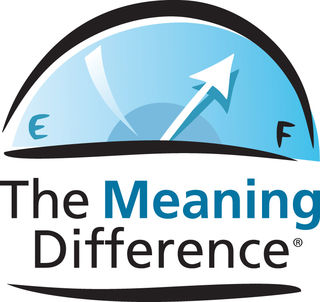Motivation
Search for Meaning as the Basic Human Motivation
Guideposts to finding meaning in everyday life.
Posted July 16, 2018

The world-renowned psychiatrist Viktor Frankl, author of the classic bestseller, Man’s Search for Meaning, famously espoused that the search for meaning is the primary, intrinsic motivation of human beings. Dr. Frankl also advised that we don’t really create meaning—we find it. And we can’t find it if we don’t look for it. Importantly, only the search for meaning holds the potential to bring the kind of authentic enrichment and fulfillment that most people desire in their personal and work lives. So how do we apply the concept of meaning in our everyday lives and work?
First, applying the concept is not about finding an answer to the big existential question, “what is the meaning of life”; rather, it is the search for meaning in your own life that is most important. Meaning comes in all shapes and sizes. Sometimes it looms big in our life; sometimes it slips in almost unobserved. In short, meaning is different for everyone—there is no one right answer—there is only the answer that is right for you.
Importantly, we cannot answer the bigger questions about meaning in our life unless we discover answers to the smaller ones: What are we doing? Why are we doing it? What do our lives mean to us? What does our work mean? Every day our lives are rich with meaningful answers, but only if we stop long enough to appreciate meaning will it bloom in our lives. By reflecting upon our existence and seeking to detect the meaning of life’s moments, we also create the opportunity to draft our personal legacy. In other words, how do we want to be remembered?1
Second, meaning always exists and therefore can be found in the everyday moments of our lives, so there doesn’t have to be just one answer to the question on how to find it. However, it’s up to us to detect the meaning of the experiences we have each day. An ancient Greek philosopher Epictetus wisely advised that it’s not the event but the meaning you attach to it that matters most in its unfolding. Meaning, in other words, can be found even in situations that do not bring us happiness or power. Dr. Frankl was convinced that, in the final analysis, “there is no situation that does not contain within it the seed of a meaning.”2 So, find the seeds of meaning in all that happens to you today.
Third, it is important to define the concept of meaning. Some people define meaning in terms of feeling that your life matters, while others define meaning in terms of extending beyond yourself to serve something bigger than yourself. Let me offer an alternative, perhaps simpler, albeit more metaphysical definition: Meaning is the connection to your true nature or, as we call it, your core essence.3
Meaning comes with being “who” we are in this world. When you believe something is meaningful, it is because it resonates with your true nature or core essence. When you believe something lacks meaning or is meaningless, it is because it does not resonate with your true nature or core essence. In a metaphysical way, your life involves the continual search for a closer connection to your true nature or core essence, throughout each day and over the course of your entire life.
“Things love to conceal their true nature.”—Heraclitus
Every living thing in the world has a natural state and qualities or attributes that make it who or what it is. Our core essence is what defines us and is at the heart of what makes us a unique human being. Although we can belong to a certain group and share characteristics of that group, we are still a unique being with our own unique essence.
The greatest challenge we face in life is to discover and embrace our core essence. Many people tend to focus on what type of job or career they think they should have, where they should live, or with whom they should have relationships but, in actuality, a truly meaningful life starts from, remains engaged with, and ultimately returns to one’s core essence—awakening our true selves by connecting to whom we really are. As Euripides, an ancient Greek playwright proposed thousands of years ago, “there is one life for each of us; our own.” The search for, the discovery of, and the connection with our true nature or core essence are what give our lives meaning every day.
Fourth, it is important to understand how meaning can infiltrate and therefore affect many parts of our lives on a daily basis. Fundamentally, we believe that meaning should be at the core of all that we do, each day. In order to live a complete life, we must understand what brings us meaning in/to our lives and what drains meaning from our lives. When we know this, all things become clearer. We come to know and feel more confident in our decisions and direction, and we also notice more energy flowing to and through us to others. In other words, we are no longer working against the flow of who we really are.
Finding meaning in everyday life is an ongoing process, one that demands attention to both intrapersonal and interpersonal needs. In large part, it represents a shift in consciousness, a heightened awareness that life is calling out to us and we are responsible for answering life’s call. Meaning is the life energy or fuel that motivates us to achieve our highest potential as human beings. In fact, meaning is an integral part of our innate humanness, and it is the search for meaning, our primary intrinsic motivation, that distinguishes us from other living entities.
Just imagine how much more joy and meaning there would be in the world if everyone lived from a closer connection to their true nature or core essence. Importantly, the search for meaning begins with you!
References
2. Frankl, Viktor E. (1997). Viktor Frankl Recollections: An Autobiography. New York: Plenum, p. 53.
3. For more about this definition of meaning and the reasoning, including philosophical foundation and behavioral science, behind it, please see: Alex Pattakos and Elaine Dundon, The OPA! Way: Finding Joy & Meaning in Everyday Life & Work, Dallas, Texas: BenBella Books, 2015; and Alex Pattakos and Elaine Dundon, Prisoners of Our Thoughts: Viktor Frankl’s Principles for Discovering Meaning in Life and Work, 3rd ed. Oakland, CA: Berrett-Koehler, 2017.




